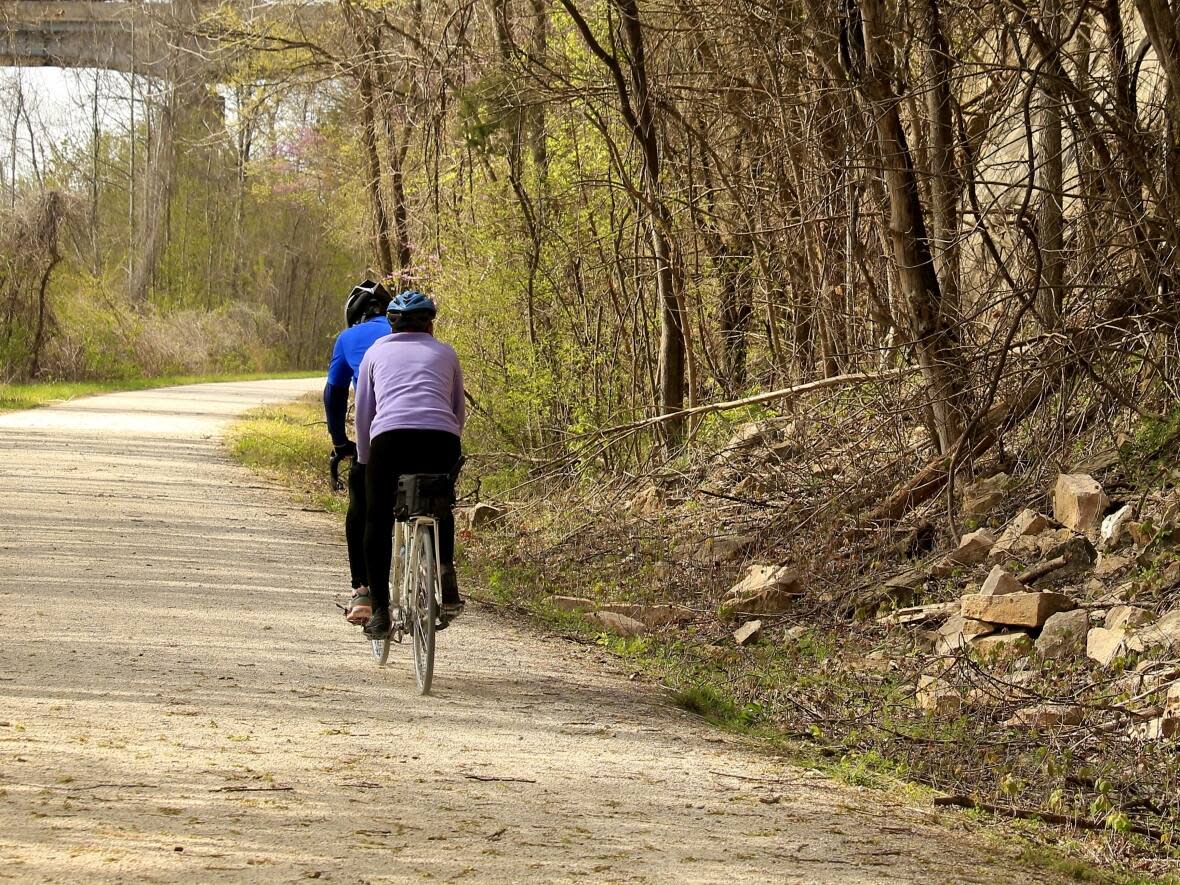Free bike lending program in B.C.'s Similkameen a boon for migrant workers without cars and driver's licences

A free bicycle lending program located near a community hall in B.C.'s Similkameen region aims to make lives easier for migrant workers who don't have a car and a Canadian driver's licence.
Last week, the Lower Similkameen Community Services Society, a Keremeos-based nonprofit dedicated to services for newcomers and refugees, installed a rack near the Cawston Community Hall that can accommodate up to 20 bikes.
An accompanying sign, written in both English and Spanish, says in order to maintain funding for the program, bikes need to be returned in good condition.
The program is funded by the Vancouver-based settlement services agency MOSAIC. Each bike has a yellow sticker that indicates it is part of the lending program.
Seasonal workers in British Columbia mostly come from Mexico, Guatemala and other Latin American countries, which don't have agreements with the Canadian government that allow them to exchange driver's licences issued by their home countries for a B.C. licence.
To get a Class 5 B.C. licence, the workers — who are legally able to stay in Canada on a work permit that is good for one to two years — have to pass a knowledge test and a road test conducted by the Insurance Corporation of British Columbia (ICBC).
Little public transit in the Similkameen
Lower Similkameen Community Services Society support co-ordinator Signe Percevault says her organization has been lending bikes and helmets to migrant workers for several years, but the recent installation of a convenient rack of bicycles is welcome news.
Percevault says the Similkameen Valley has very little public transportation for migrant workers, so they're happy to be able to borrow the bikes for free.
"Not all of the employers are able to drive them around to do their errands, so the bike program hopefully will be self-sustaining and be able to address partly that [commute issue]," she said on CBC's Radio West.

The society's David Haro, who immigrated to Canada from Mexico City about a decade ago, says some of the migrant workers he has served didn't know how to bike but, given the benefits, were eager to give it a go.
"Some of the farmers don't give them a car or bike, so they had to walk to the store to get groceries," Haro said. "It's very good for them to have some kind of transportation."
Haro adds that some migrant workers loved the bikes so much that they borrowed them for a year.
Running program on honour system
Percevault says her organization runs the bike lending program on an honour system and tries to keep barriers as low as possible.
"I do expect that some of the bikes may not be returned right away — it is the nature of when you're lending something free — but we do hope that this will be a sustainable system that bikes will find their way back to the rack," she said.
The Lower Similkameen Community Services Society welcomes bike donations and will provide maintenance for donated equipment. Donors can call or WhatsApp the organization at 250-499-6273.


